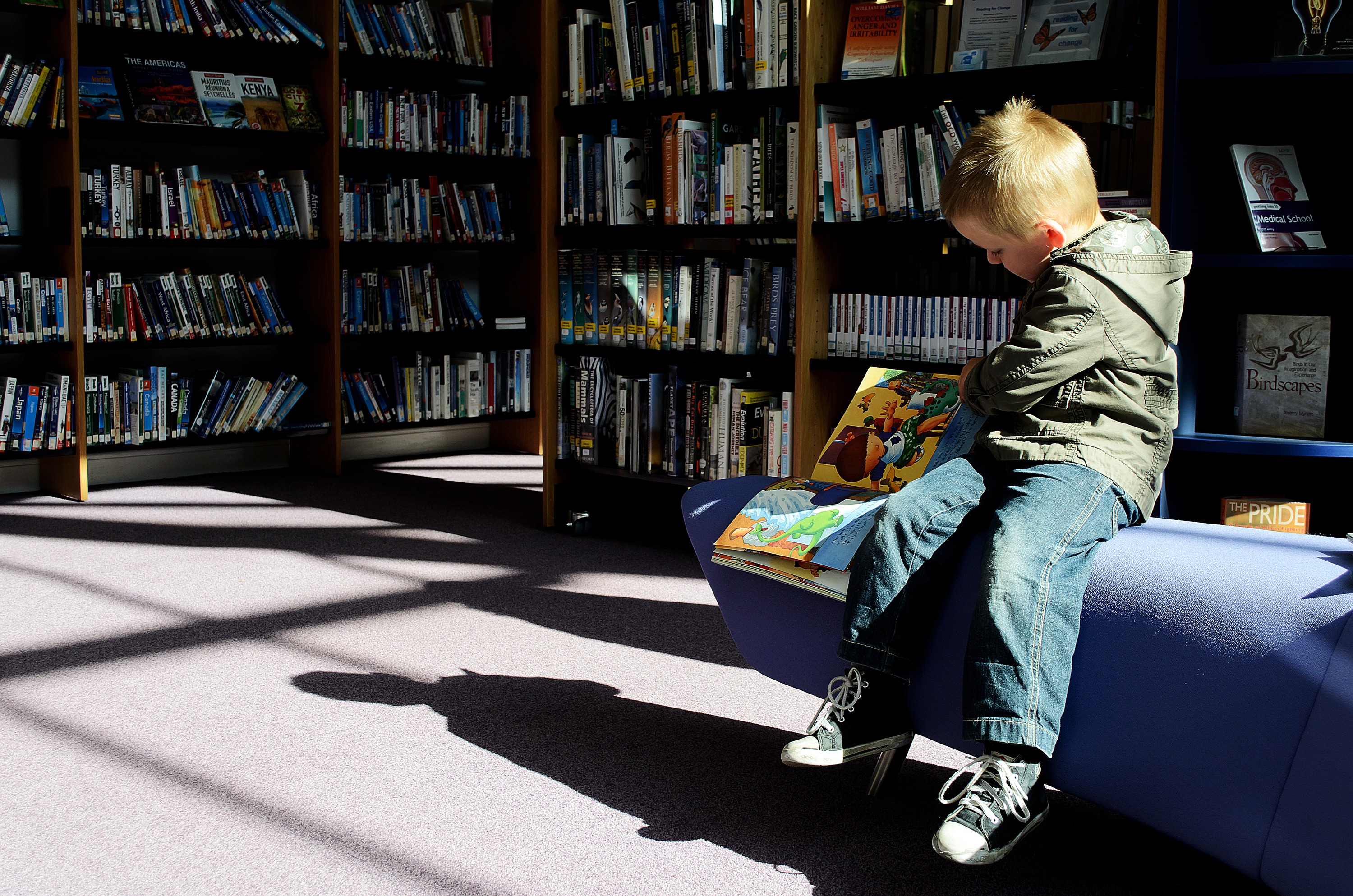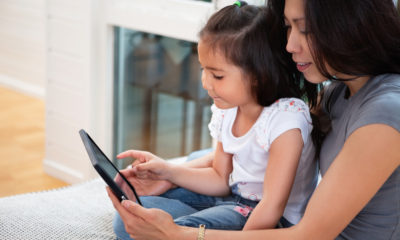Sex Ed
You Are Your Child’s Main Sex Educator – Are You Doing Your Job?
Parents are the primary sex educators to their children. This is the case regardless of your choices as a parent. Even if you pointedly choose not to talk about sex and sexuality, your choice is sending clear and persistent messages to your child.
Some parents secretly hope that everything will take care of itself in time. They figure that we all managed to make it somehow, with or without the intervention of our awkward parents, and thus so will their kids. Sometimes this is a conscious decision (“we don’t talk about things like that in my family”), but most of the time, it’s avoidance by default. Given the sensitive nature of the topic and the uncertainty around good parenting practices regarding sexuality, this is more than understandable.
It’s possible that a child finds their way to self-acceptance, accurate knowledge, confidence, guilt-free pleasure, respect for others, and a sense of responsibility all by themselves. Actually, the chances of this would be good if the world was neutral about sex and sexuality, and children were free to develop and explore by their innate curiosities and motivations. But, this is nothing like the world we live in. Our world is full of messages about sex, many of them driven by consumerist interests (“sex sells”), many of them exploitative, hurtful, and profane, and many of them debase and distort the truth. More and more, these messages are directed at children. And even the ones that are meant for adults are saturating children constantly. Thus, if it’s important to you that your child grows up sexually healthy, don’t leave it up to chance.
So, are you doing your job as a sex educator? Here is a basic job description.
1. Have Many Little Talks – and Listen. Forget the Big Talk – it’s an out-dated model and is perhaps the biggest mistake that parents can make. The classic Big Talk involves giving a lot of information all at once (usually about how babies are made, and cautions about some combination of boys, girls, pregnancy, diseases, dating, love, and relationships).
Why is it so bad? It loads up the conversation with a sense that sexuality is terrifying and awful, and more often than not the parent’s own anxieties and discomforts speak louder than anything they’re saying. The messages that the Big Talk (and otherwise silence) give are: I dread this topic. I’m just doing this to get it over with. Don’t come to me with your problems or questions. (And yes, the message is still “don’t talk to me” even if you emphatically say “talk to me any time!” during your Big Talk).
Instead, have multiple, little talks. Integrate information as well as your values into everyday conversations – what sex educators call “teachable moments”. See someone pregnant on the street? Talk to your 8 year-old about babies. Find out what they know, think, and feel. On your way to a family wedding? Ask your 5 year-old about love and relationships; share your own stories. School dance coming up? Ask your 14 year-old whether their peers are dating, what is normal for their friend groups, say what your feelings and limits for them are.
Keep conversations light. While you ought to share and teach your values, don’t use Little Talks only as opportunities to reprimand or interrogate. Their purpose is to create a two-way flow of information, which means that you should be listening as much as you’re talking. When the time comes to have a difficult conversation (if it ever does), you will have made it easier and safer for your child to share.
2. Use the Correct Words. By this I mean the scientific words – like vulva, penis, masturbation, etc. This is a simple way of communicating openness, and minimizing the cultural biases of certain words and ideas. It may feel stilted at first, if this is not your usual practice. But a bit of initial awkwardness will save you from the even more awkward silence when baby words no longer seem appropriate and a transition is necessary. It also, as research repeatedly shows, empowers young people about their bodies. Taking shame away from their words will take shame away from their private parts, and make it that much easier for them to say “do not touch me”, “I don’t like it”, or “back off” when it counts.
3. Nurture Wonder and Curiosity. Aside from giving facts and sharing values about sex and sexuality, don’t forget to also talk about things that are wondrous and fun for children to know. For example: humans are mammals and reproduce like cats, chimpanzees, pandas, and otters; the egg (ovum) is the largest human cell, and the sperm is the smallest; falling in love creates real, biological changes in the brain; some animals couple for life and others don’t; many species of animals have more than two genders. These bits of information don’t have to be sex-specific. In fact, it is better if they are mixed in with non-sexual things. After all, the purpose is to create a sense of wonder about the natural world, including the human body and human relationships. The more integrated sex and sexuality information is, the more it actually reflects reality and deconstructs taboo and shame.
4. Learn and Unlearn. Accurate and positive information about sex and sexuality is hard to come by, and most of us have been fed a lot of misinformation about sex and sexuality. As someone else’s sex educator, your skills need constant upgrading. Read articles, have conversations, ask questions, and do your research. Particularly, if a topic strikes fear into your heart, or especially angers you, look into it. There’s nothing that shuts down conversation more than an incensed parent who is themselves shut down and not listening.
This also means that you may have to do some soul-searching and making peace with your past. So often, the things that parents are most fearful about come from their own negative experiences. While it’s important to pass on the wisdom you’ve earned from your own mistakes, it’s not fair to unload disproportionate amounts of fear, guilt, or shame onto your children. Be accountable for your own “stuff” – unlearn what is not accurate or realistic, so you can make room for new learning.
5. Evolve – the Meaning of Things Change. Sexuality, like much of human relations and psychosocial existence, is cultural. To name a few examples: the meaning of holding hands has changed over time; the acceptability of nudity varies family to family, culture to culture; the gravity of divorce and break-ups continues to evolve worldwide; and the appropriateness of asking someone out via texting and SMS depends largely on age group. Which is to say, there is no inherent meaning in any one event, activity, or bodily condition. They mean what we make them mean.
For parents, this is important to know because the world you grew up in is not the world today. Add to that experiences of migration and rapid globalization, and you can guarantee that you and your child will understand some things very differently. Among these could be: dating, sexual experience, same sex relationships, virginity, marriage, co-habitation, tattoos, revealing clothing, sexually suggestive dancing, abortion, talking about sex, having a doctor who is a of different sex, swearing and foul language, drinking, recreational drugs, religious practice, parenthood, and an endless more.
If you aspire to be a parent who is both principled and realistic, both an anchor and a sounding board to your child, then you must find a balance between your world of meaning and theirs. Before you bar your 4 year-old from touching their genitals, your 17 year-old from getting a tattoo, or your 13 year-old from showing her bra strap through her off-the-shoulder top, consider what your underlying values and motivations are, and what decisions and actions they translate to today. If what you want is to teach privacy and good manners, it might be better to say, “that’s something you do in private, in your room”, instead of shaming a youngster from self-pleasure (which is perfectly healthy). If what you want is for your child to belong and to be well-received, it may be that the tattoo he gets is on a body part not usually revealed in office wear. If you want to affirm self-respect and safety, it may be that you de-emphasize the importance of a daughter’s physical appearance (including comments about her weight and body), emphasize her other strengths, and bolster her abilities to set boundaries and entitlement to bodily autonomy.
No parent is perfect, and you don’t need to be a perfect parent to set the stage for your child’s self-acceptance, confidence, and positive attitude. What’s for sure, though, is that it won’t happen by accident. There are countless things that demand your patience, effort, and courage as a parent, and your child’s sex education is one of the most important ones. Your peace of mind, and their social, psychological, and physical well-being, will be well worth it.
Karen B. K. Chan is a sex educator, emotional literacy trainer, and speaker in Toronto, Canada. Above all, she’s dedicated to widening the definitions of what’s erotic, cultivating ease and acceptance, and proving that emotional literacy, play, and honesty are sexy. She works with individuals, parents, service providers, and groups, and has taught in the sex and sexuality field for over 15 years. Her current projects include delivering sex education in schools — for students as well as parents and teachers; video projects that challenges the idea of normal; workshops of all kinds, including ones that complement her 5-minute youtube video “Jam” (which envisions sex as a lifetime of jam sessions); developing tools to shift sex ed away from (sexual) activity and towards experience and meaning; and germinating the idea for a children’s book series on feelings.Karen is also ecstatic to sit on the jury for the 2014 Feminist Porn Awards, which gives kudos to films and videos that depict agency, pleasure, desire, connection, communication, and diversity.
Get in touch with Karen via email at karenbkchan@gmail.com






























